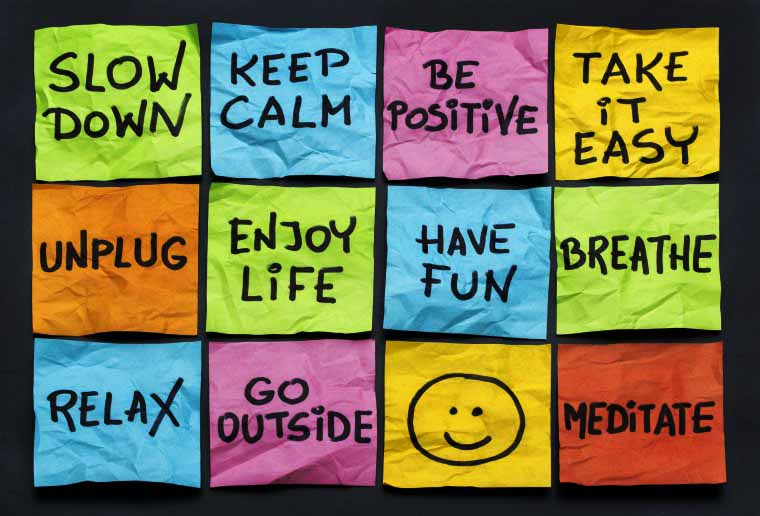By Beatrice Nakibuuka
Stress is a psycho-physiological reaction to an imbalance between the demands placed on a person and his/her ability to meet them.
In other words, stress is the wear and tear our bodies experience as we adjust to continually changing environments, situations or tasks.
It is a normal response that allows us to survive in our environment.
It is important to note that our perception of the stressful event often determines our reaction. Besides, our coping mechanisms and support systems play a key role in our stress management.
According to Ali Male, a counseling psychologist at A-Z Counseling Services, stress affects all aspects of one’s life because no part of the body is immune to it.
It may affect your emotions, general behaviour, thinking ability and physical health.

Causes
In our daily lives, we encounter so many stressful things. These depend on each person’s lifestyle, environment, nature of work and interpersonal relationships.
However, there are common causes of stress and these include financial obligations, unemployment, divorce, loss of a loved one and failure to meet expectations.
Male says: “Women in their mid-20s and late 30s are more vulnerable to these problems due to the fact that they have multiple roles in society. The fear that they may not be able to fulfill all the obligations make them become anxious and when they fail to fulfill these responsibilities, they become stressed.”
Generally, the major causes of stress include tight deadlines, long working hours, work over- load, interpersonal conflicts at work, lack of boundaries between home and work life, and lack of participation in planning, and decision-making, among others.
Such situations lead to family conflicts, insufficient finances, lack of participation and influence on policies, rules and strife.
Other causes also include natural disasters, epidemics, lack of trust, laziness, negative attitudes, poor time management, poor lifestyles like extravagancy or extreme conservatism with own resources.

Signs & symptoms
Symptoms of stress vary from one person to another due to the difference in causes and personal experiences.
According to Dr Edward Ssempiira, a psychologist at Hope and Beyond rehabilitation Centre, physical signs may include, but are not limited to: increased heart pulse, muscle tension, fatigue, change in appetite, nausea and vomiting without medical explanation, weakened immunity, general body weaknesses, headache, irregular periods in women, skin diseases like acne, allergies and loss of libido.
Behavioral signs may include fear without explanation, suspiciousness, unexplainable guilt and shame, jealousy, over reaction, mood swings, lack of empathy, poor concentration, difficulty making decisions, forgetfulness, sensitivity to criticism, social avoidance (withdrawal), focus on negative aspects, nightmares, change in sleeping patterns, excessive or less eating, drug use, absenteeism, sadistic tendencies and procrastination.
Spiritually, when someone is stressed, their view about the world and spirituality might change.
Life becomes meaningless and they develop dryness, despair and hopelessness.
They tend to question the fundamental principles of life like the existence of God.
They might lose consciousness about right or wrong, and might not be remorseful about their mistakes and violations.
When one becomes dysfunctional in any of the important areas in life; physically, emotionally, behaviorally, socially (including family life and occupation/ work) and spiritually, they should seek professional help from a psychotherapist or counsellor.
In case of very severe psychiatric signs, one must seek psychiatric attention.

Prevention
Women are twice more likely to develop fatal heart complications from mental stress than men.
Several other complications such as failure to conceive, and miscarriages might also be a result of mental stress.
Some people with extreme levels of stress can kill others (homicide) and/or can kill themselves (suicide).
However, there are several ways to prevent this such as quitting smoking, curtailing excessive alcohol intake, and exercising regularly.
Male remarks that if you find yourself feeling extremely overwhelmed by emotions, pressures, or obligations, try to shift your perspective by deciding what is most important and what you want life to mean to you.
Get enough sleep
Stress is known to increase during the holidays due to an escalation of demands in families inability to manage expectations. This could bring about financial and emotional stress.
You, therefore, need to have enough rest. That way, you are less likely to become physically sick and emotionally overwhelmed during holidays.
“Good sleep hygiene includes establishing a consistent sleep pattern, limiting daytime naps if you do not fall asleep until late at night, and taking a warm bath before you sleep,” Male says.
He recommends cutting out stimulating drinks such as alcohol or coffee close to bedtime, and keeping screens such as televisions, smartphones and tablets out of the bedroom where possible.

Eat well
During stressful times, it is important to pay close attention to your bodily demands. Your body needs nutrients that will boost your immune system.
According to Dr Alex Mokori, a dietician at UNICEF, “This can be achieved by eating a balanced diet, but also paying more attention to minerals such as magnesium that will help relax muscles and decrease anxiety.”
Dr Mokori recommends taking zinc to boost one’s immune system, and omega-3 fatty acids which are powerful anti-inflammatories.
Magnesium-rich foods include wheat, spinach, peanuts, black beans and avocados. While Omega-3 rich foods include sesame, chia seeds and fish.
Foods rich in zinc include meat, legumes, nuts, grains, among others. Besides, happy fruits like apples, bananas, grapes and oranges can help boost your mood.
Treat yourself
When you have a considerably overwhelming to-do list, try to assess what is reasonable and let go things beyond your control.
Have a top priority list of things to do and let these include things that are important to you rather than focusing on other people.
Do not focus so much on your failures. Be happy for the little accomplishments you were able to register.
When stressed, it is easy to forget about your health. Listen to music, read a book, exercise and if possible, set aside things that can wait until a later date.
“Make time for a daily routine for something you enjoy doing and would make you relaxed.
“To your routine exercise, you may add a less strenuous activity like walking, yoga or meditation that would help reduce blood pressure and stress,” Ssempiira says.

Delegate
If you have very little time to accomplish some tasks, it is important you involve your workmates or even family members and delegate different tasks to different people including children.
This will make the tasks less stressful and enjoyable for the whole family since everyone is involved.
You can also ask your spouse to watch the children while you schedule some time alone. Seeking some solitude is both healthy and necessary to reduce stress.
Draw clear boundaries
If you want to avoid stress, it is important that you draw clear boundaries between work and personal time.
Learn to feel okay about saying ‘no’ and putting yourself first. Practice good time management and communication.
“If you are at work, ensure that you deliver your assignments on time. Do not procrastinate.
“When you are off for leave, no matter how short it is, make it clear that you cannot respond to texts or emails, and do not feel pressured into filling in for co-workers who ask to swap shifts,” Male warns.
Grieve
If you have lost a loved one or are facing other difficult life situations, you may feel sad. Do not ignore the feeling. It is normal to express these feelings rather than suppressing them.
“Talk freely about what you have enjoyed with your loved one in the past because pretending as if the loss does not affect you will make things worse,” Ssempiira says.

Practice gratitude
Male says each new day is a chance for you to count your blessings and remember what you have instead of worrying about what you do not have.
“Take a minute to appreciate the abundance of love, health, family, and friends. Teach your children about abundance.
“They should know that the most important things in life are the things that make us the happiest: good relationships with family and friends, a partner we can share our life with, and a full schedule of social activities that involve lots of smiling and laughing,” he says.
Take time off when sick, take vacations, day trips or mini-vacations, have a massage or beauty treatment, dance, swim, walk, run, play, sing or do any physical activity that is fun for you. Also, get enough sleep, and set realistic goals.
Seek help from friends or religious leaders who can lift you up spiritually and help restore your hope and view of life.






















